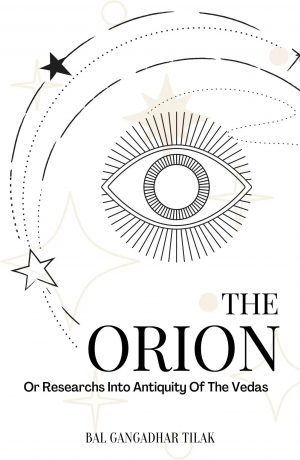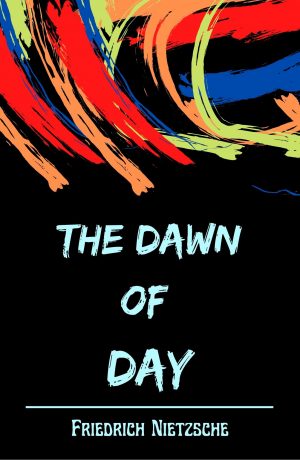Siddhartha : An Indian Tale by Hermann Hesse (Hardback)
Siddhartha : An Indian Tale, novel by Hermann Hesse based on the early life of Buddha, published in German in 1922. It was inspired by the author’s visit to India before World War
₹325.00 ₹495.00
Related products
-
Religion & Philosophy
Siddhartha : An Indian Tale by Hermann Hesse (Hardback)
0 out of 5(0)- ISBN-13 : 978-8182475441
- Page: 141
- Dimensions : 22 x 14 x 1 cm
- Siddhartha, novel by Hermann Hesse based on the early life of Buddha, published in German in 1922. It was inspired by the author’s visit to India before World War I.
SKU: n/a -
Religion & Philosophy
The Sikh Religion : Its Gurus, Sacred Writings and Authors 6 Volume Set; Classic Collectors Edition by Max Arthur Macauliffe (Hardcover)
 Religion & Philosophy
Religion & PhilosophyThe Sikh Religion : Its Gurus, Sacred Writings and Authors 6 Volume Set; Classic Collectors Edition by Max Arthur Macauliffe (Hardcover)
0 out of 5(0)- ISBN-: 978-8182476165
- Editon-: 2021
- Page-: 2190
This beautifully crafted set of 6 books Is a monumental work on the Sikh religion, Its the most comprehensive work In the early Sikh tradition that provides an accurate version of the Sikh scriptures. This work was reproduced from the original artifact, and remains as true to the original work as possible. Born and educated in Ireland, Max Arthur Macauliffe (1841–1913) joined the Indian Civil Service in 1862. In 1882 he was promoted to the post of deputy commissioner of the Punjab. But it was after he retired from the civil service in 1893 that he gained public attention. Macauliffe developed a close affinity with Sikhism while in the state of Punjab, eventually converting to the religion. His translation into English of the Guru Granth Sahib, the holy book of Sikhism, is recognised as the most accurate to date.
SKU: n/a -
Religion & Philosophy
The Dawn of Day by Friedrich Nietzsche (H.B)
0 out of 5(0)One of the most important philosophers of the nineteenth century, Friedrich Nietzsche’s influence on modern thought has extended beyond the borders of philosophy. His works have helped shape modern anthropology, psychology, theology, and sociology. Poets, novelists, and artists have also been touched by Nietzsche’s powerful concepts and perspectives. Edited by a noted Nietzsche scholar, this authoritative compendium is a vital assembly of nearly all of Nietzsche’s early works. Marking the advent of his mature philosophy, these aphorisms and prose poems examine the impulses that lead human beings to seek the comforts of religion, morality, metaphysics, and art. Nietzsche proposes greater individualism and personality development, addresses issues of society and family, and discusses visions of free spirits with the courage to be rid of idealist prejudices. Written in his distinctive, often paradoxical style, The Dawn of Day presents practically every theme touched upon in Nietzsche’s later philosophical essays. It is an essential guide and a fundamental basis for the understanding of the great philosopher and his work.
SKU: abhtdod -
Religion & Philosophy
The Orion: Or Researches Into the Antiquity of the Vedas by Bal Gangadhar Tilak (H.B)
 Religion & Philosophy
Religion & PhilosophyThe Orion: Or Researches Into the Antiquity of the Vedas by Bal Gangadhar Tilak (H.B)
0 out of 5(0)ORION AND HIS BELT Agrahdyana Agrayana in the older works.. Probable derivation of hdyana–The Agrayana sacrifices–Their number and nature Performed every half-year in Vasanta and Sharad–Greek legends of Urion-Their similarity to Vedic legends–German traditions and festivities-Stag and hind–Twelve nights-Dogdays-All of which indicate the commencement of the year in Orion –Dr. Kuhn’s explanation is insufficient–The usual adjuncts of Orion–His belt, staff and lion’s skin–The aivyaonghana of Haoma in the Avesta–The yajnopavtta of the Brfthmans– Their sacred character probably borrowed from the belt of Orion or Yajna–Use of mikhald, ajina and danda in the Upanayana ceremony–Probably in imitation of the costume of Orion or Prajftpati, the first of the Brahmans- Derivation of Orion from Agrayana-Its probability–Phonetic difficulties–Conclusion. In the last chapter 1 have quoted an observation of Plutarch that the Greeks gave their own name to the constellation of Orion, and have there discussed some Vedic legends which corroborate Plutarch’s remarks and indicate that the vernal equinox was in Orion at that time. In the present chapter I mean to examine other legends which go to shew that the constellation of Orion was known and figured before the Greeks, the Parsis, and the Indians separated from their common home. and that the legends or the traditions so preserved, and perhaps the name of the constellation, can be naturally and easily explained only on the supposition that the vernal equinox was then near the asteism of Mrigashiras.
SKU: n/a




There are no reviews yet.